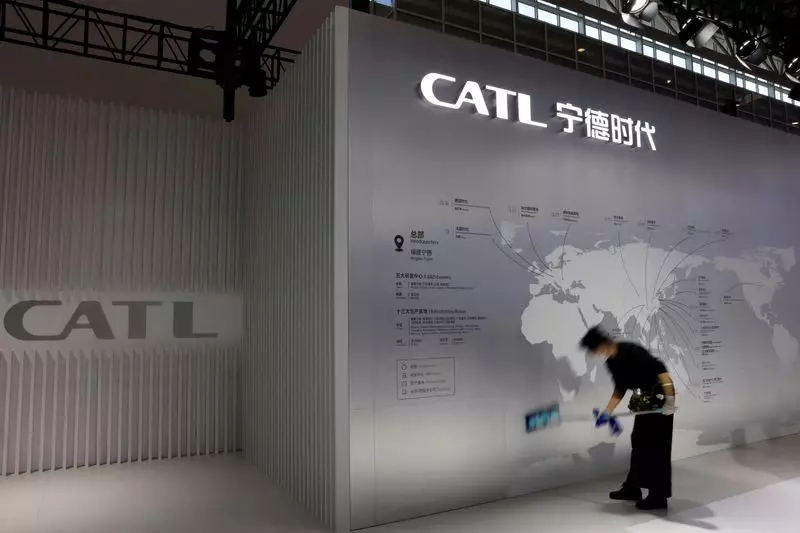In a striking move reflecting escalating tensions between the United States and China, the U.S. Defense Department has recently updated its list of Chinese companies it regards as military affiliates, thereby drawing attention to potential security concerns associated with these firms. Among those designated are major players in the tech landscape, including Tencent Holdings, a dominate force in social media and gaming, as well as CATL, the world’s leading electric vehicle battery manufacturer. This article delves into the motivations behind these designations, the reactions from the companies involved, and the broader geopolitical ramifications of this decision.
The updated list, known formally as the “Section 1260H list,” identifies 134 companies that the Pentagon believes are intertwined with China’s military ambitions. Among the notable names are Changxin Memory Technologies, Quectel Wireless, and Autel Robotics. This annual update serves not only as a tool for U.S. national security but also influences how American and global investors approach partnerships with these companies. The freshly designated firms are accused of being enablers in China’s military modernization, significantly complicating their ability to operate internationally.
Following the release of the list, stocks for multiple companies showed immediate volatility. Tencent, characterized as a non-military entity, witnessed its Hong Kong shares plummet nearly 7%, while its U.S. counterpart experienced an 8% drop. CATL echoed similar sentiments, asserting that its operations do not align with military objectives. This swift downturn underscores the potential reputational fallout for firms labeled by the Pentagon, revealing an urgent need for organizations to reassess their affiliations amid heightened scrutiny.
In light of the Defense Department’s move, the responses from the companies featured on the list were firm and adamant. Tencent called the inclusion a “clearly a mistake,” distancing itself from any military ties. This sentiment was echoed across the board, with CATL and Quectel vigorously disputing their designations and urging the Pentagon for reconsideration. As reported, Quectel’s spokesperson stressed that the company does not engage with military efforts anywhere globally, highlighting the tension between corporate operations and government assessments.
The pushback from these corporations emphasizes a crucial aspect of the evolving business landscape wherein companies are increasingly compelled to negotiate the intersection of their commercial interests with national security perceptions. For many firms, being listed as a military company poses not only operational challenges but also impacts investor confidence and market share.
This new addition to the list may serve as an impetus for American companies to evaluate their exposure to Chinese firms categorized as military-affiliated. Experts, such as Craig Singleton from the Foundation for Defense of Democracies, argue that the scope of technologies considered sensitive is broadening, making it essential for U.S. enterprises to tread carefully as they engage with Chinese firms. The concerns range from data security to technology transfer, with heightened scrutiny becoming the norm for any interaction involving entities listed as potential enablers of military capabilities.
The evolving landscape has ramifications beyond companies themselves, impacting the geopolitical relationship between the U.S. and China. With both nations at a crossroads concerning trade agreements and military posturing, the designation of Chinese tech giants as military affiliates may deepen distrust and complicate diplomatic efforts. As U.S. lawmakers push for stricter regulations and oversight, the implications on global markets could introduce new barriers to trade and collaboration.
The recent inclusion of prominent Chinese tech companies on the U.S. Defense Department’s military list highlights deepening concerns about national security amidst an intricate web of international dependencies. The rapid market reactions illustrate the precarious balance these companies must maintain as they navigate both business objectives and geopolitical realities. As companies like Tencent, CATL, and Quectel seek to challenge their designations, the unfolding scenario will play a crucial role in defining future relations not only between U.S. and Chinese entities but also affecting global economic dynamics.
In this ever-evolving context, the long-term consequences of such political maneuvers remain to be fully realized, ensuring an ongoing discourse on the fine line between fair commerce and national security interests. As we look ahead, one thing is certain: the relationship between the U.S. and China is set to become even more complex, marked by caution and growing divisions in the arena of trade and technology.

